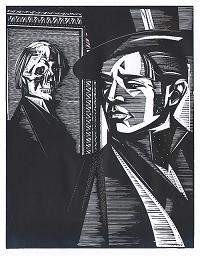I knew today’s post title would grab your attention. Well, maybe not, because sales isn’t usually regarded as the “entertainment” side of radio. And as many who got into the programming/performance side of the business will tell you, they never had much of an interest in sales.
But I would submit to you that the last decade or so suggests an entirely different way of looking at radio. That’s because while radio’s content has hung in there pretty well (more on that in a moment), it’s the sales side that has lagged behind – to a point where radio’s weakness in revenue generation threatens to upend the overall business.
Programmers and consultants have learned – the hard way – that while their ratings goals may be achieved, a deficiency in sales can debilitate the process, and ultimately derail station budgets, new initiatives, and the ability to maintain brand equity.
Radio used to be a simple business. Great ratings led to strong sales. And if you could pull off solid Arbitron performances consistently, the world was your oyster, powered by strong revenue generation.
 But as broadcasters consolidated (and it continues as I write this) and seek out “economies of scale,” better EBITDA, and the ability to know the rates of every station in the company by a simple smartphone check, the bigger sales picture has become as horrific as the “Picture of Dorian Gray.”
But as broadcasters consolidated (and it continues as I write this) and seek out “economies of scale,” better EBITDA, and the ability to know the rates of every station in the company by a simple smartphone check, the bigger sales picture has become as horrific as the “Picture of Dorian Gray.”
At The Radio Show, Bob Pittman’s words are still resonating with all of us here at Jacobs Media. While Pittman presented a very bullish view of radio’s connection to consumers in a series of smartly selected PowerPoint slides, he pointed to some important realities that have eluded many in radio.
First, he addressed the myopia of transmitters and towers head-on, noting that stations are in fact brands – and their great content should be accessible whenever and wherever there are listeners who want to consume it. This speaks to the CX/UX that we have been discussing in this space throughout 2011.
Second, he noted that while radio’s content creators have done a solid job, the hole in the hull is on the sales side. Pittman exhorted radio to stop thinking about revenue generation in the traditional form of :30s and :60s but to instead view radio marketing as lending our brand equity to advertisers in many different forms.
 Finally, the new CEO of Clear Channel emphatically underscored the need for radio to do a better, more artful and more persuasive job of telling its story – especially to marketers and advertisers.
Finally, the new CEO of Clear Channel emphatically underscored the need for radio to do a better, more artful and more persuasive job of telling its story – especially to marketers and advertisers.
Too often, radio reps simply tout their stations by comparing them to or even trashing competitors (inside and outside of their clusters), while failing to make the “greater sale” – establishing the value and power of radio as a medium.
This week, we are going to take on these “sales issues,” and outline new plans and new initiatives that might help jumpstart radio’s stagnant sales efforts. As many readers of the jacoBLOG know, our company produced the “Marketing To Men” study this past January. While it painted a persuasive picture that underscored the power of male shoppers and stations with men-centric audiences, it did not address some of the larger aims of helping re-establish radio’s place in the overall advertising and marketing process.
Too often, agencies, buyers, and even retailers have overlooked radio or written the medium off altogether as being ineffective, “old school,” or incongruent with where consumers are heading. Some of these feelings are due to less than stellar sales tactics that focus more on metrics at the expense of a more solutions-based strategy.
We’ll address these perceptions this week, and add solutions that will stir some thinking and, hopefully, even some actions.
We’re all in this together.
- What To Do If Your Radio Station Goes Through A Midlife Crisis - April 25, 2025
- A 2020 Lesson?It Could All Be Gone In A Flash - April 24, 2025
- How AI Can Give Radio Personalities More…PERSONALITY - April 23, 2025




Radio DOES NOT need to “do a better, more artful and more persuasive job of telling its story”. Radio needs to do a more sincere, legitimate and persuasive job of understanding it’s CLIENT’S story. This is the fundamental mistake it has made since the world converted from analog to digital.
Radio’s current and hoped for client base is facing a world of challenges – from a miserable economy to a media landscape that changes daily – in other words, pretty much the same challenges radio is confronting. They need marketing partners that can help them understand, navigate, execute and prevail in this environment, not more one-way power points suggesting that if advertisers weren’t so misinformed, they’d be buying radio spots buy the truckload.
Radio’s sales effort is, IMO, hindered by two key problems. The first and most important is that radio hasn’t,really figured out how to leverage its own assets in this environment, so its ill equipped to advise others on how to do it. Its the same reason dentists with rotting teeth and flabby personal trainers have trouble finding clients.
The second and less obvious problem is radio non compete hindered comp system. Creative, ambitious, talented sales people are not attracted to a career path that leaves them stuck at one company indefinitely where every year commissions and opportunities for advancement are reduced.
The way for radio to fix its sales issues is to stop talking and start listening. Radio is no country for old men…
Bob, as always, thanks for the insightful comments regarding radio sales. As someone who has made umpteen sales calls in your career, while managing scores of reps, your perspective is a valuable one. I don’t think we’re in disagreement here. Instead of selling spots and quoting metrics, reps need to solve problems, using the power of its brands to help its clients. So, it is a matter of radio providing advertisers with a better solution set, and knowing which ones are going to be more effective for each individual client. Yes, it’s a listening problem, but it’s also being aware of what combination of tools can bring results.
And yes, it’s a personnel problem, too, as we will cover in a blog later this week. I am hoping that we hear from sales managers and reps along the way. Their perspecitve – whether they agree or call bullshit on these posts – would be of value, too. Thanks for taking the time.
RADIO SALES 101… a great path to venture down. It’s always amazed me that many “radio programmers” see sales and all it represents as some kind of “enemy” to the programming position. Conversely, I’ve often been staggered by the lack of will among sales and AE’s to genuinely explore and engage in all the content opportunities available to them to inventively connect clients with brand or user generated content. Rather than “solution selling” it’s solution thinking that gets everybody in the room on the same page. As Brand Content managers, not “programmers”, the obligation, and the deal gets inclusive fast; and with the raft of platforms and layers to build on, I’ve found the client and agency conversations centered around shaping content initiatives with and for listeners/customers are the most rewarding… creatively and financially.
I like the “solution selling” term (and Bob Bellin should, too). The smart programmers have learned (the hard way) that they’d better be working with sales (and their clients) to find a way to make it work. Appreciate your input and POV, Lee.
When working with a marketing company to produce a radio piece, what do you really suggest I do from my part?
I know what information I want to get across but how?
Jim, give me some more detail about your role and your goals, OK?